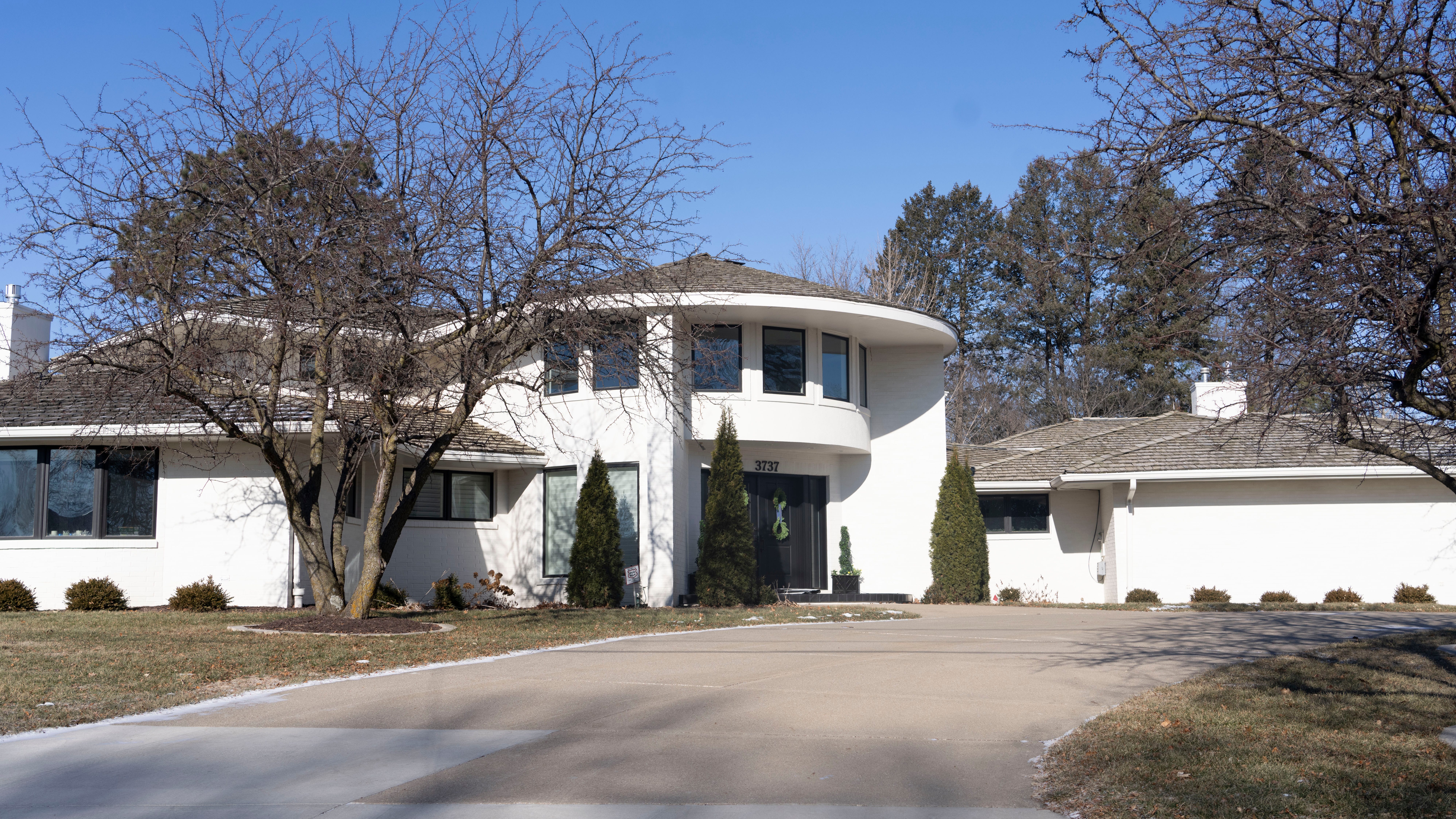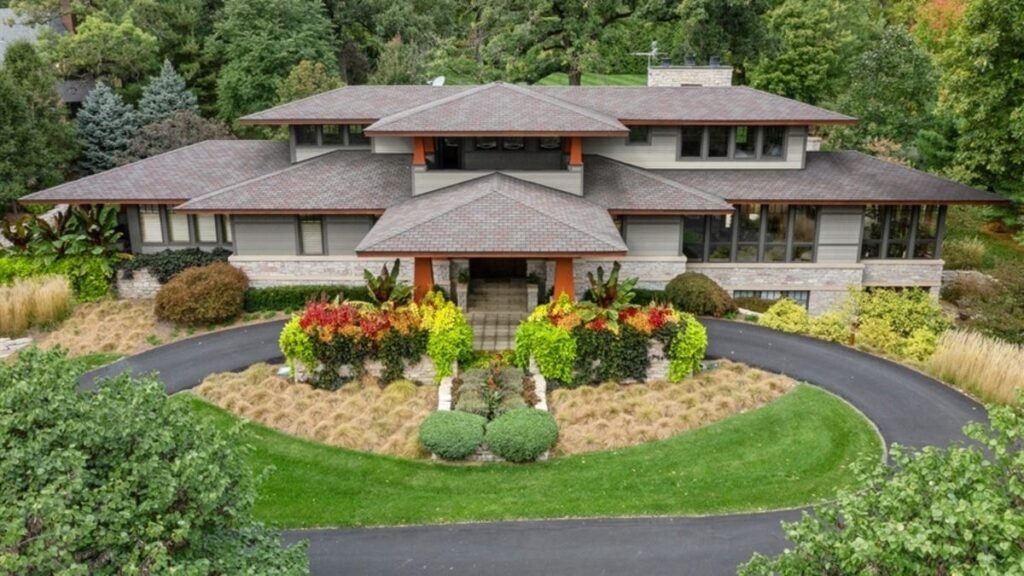
See the most expensive homes sold in the Des Moines metro in 2024
A look at the most expensive homes sold in Polk, Dallas, and Warren counties.
- After several years of decline, home sales in the Des Moines metro have stabilized, suggesting the market may be turning around.
- Still, mortgage rates remain high despite recent Federal Reserve cuts, impacting affordability, especially for first-time buyers.
- A shortage of homes in the $100,000-$200,000 price range further exacerbates the challenges faced by entry-level buyers.
The boom times still aren’t back in Des Moines’ real estate industry — but the worst of the downturn in home sales may be over.
Home sales in the metro in 2024 increased for the first time in three years, inching up from 13,246 to 13,293. It was a marginal uptick — just 0.4% — but a turnaround from 2023, when home sales fell 16%, and 2022, when they tumbled 12%.
It showed that buyers are finally getting used to paying at least 6% interest on their mortgage, said Les Sulgrove, a former president of the Des Moines Area Association of Realtors, and a metro area home market analyst.
“For us to be flat, that’s the same as a turnaround in my book because sales are not stalling any more, they’re evening out,” Sulgrove said. “This is like the bottom, and the market should turn back upwards.”
Rates in the 6% to 7% range aren’t historically high, but they follow a long period when rates were historically low, bottoming out around a record 3% in 2021.
If they come down just a bit, as they temporarily did late last summer just before the Federal Reserve began a series of cuts to its benchmark interest rate, 2025 could be an even better year, Sulgrove said
“Some magic things happened in August and September when we got down to that 6% number, or close to it,” he said. “If we get that national average down close to 6%, I think we’ll see that same kind of magic.”
Why did mortgage rates increase after the Fed cut interest rates?
The Fed’s last rate cut came Dec. 18. Average 30-year and 15-year mortgage rates fell leading to the first rate cut on Sept. 18.
That spurred homebuying as the 30-year rates bottomed out at an average of 6.08% on Oct. 3, according to the Federal Reserve Bank of St. Louis.
Home sales in the Des Moines area shot up 20.8% in October, 10.8% in November and 10.8% in December over the same months in 2023, according to the Des Moines Area Association of Realtors.
But mortgage rates have increased since then.
Charlie Dougherty, a senior economist for Wells Fargo in New York, said several factors influence mortgage rates. First the Federal Reserve does not control mortgage rates directly, Dougherty said.
“Mortgage rates more correlate with 10-year treasury yields, which the Federal Reserve has some influence over but not really direct control,” Dougherty said. “There’s no dial that the Federal Reserve can change that would affect mortgage rates in a meaningful way.”
When the Fed first cut interest rates, the bond markets expected several rate cuts. But in December, the Fed indicated it would lower rates only twice in 2025 because the economy is on more solid footing than previously thought.
“So the finance market, again specifically the bond market, has been paring back their forecast for Fed cuts moving forward,” Dougherty said. “The expectation for future monetary policy is a big driver of long-term rates, and mortgage rates are a part of that.”
Rick Wanamaker, an agent for Iowa Realty who specializes in high-end real estate, said he was not surprised that mortgage rates stayed high after the Fed lowered the benchmark rate. Generally, the higher inflation is, the higher mortgage rates will be, Wanamaker said.
Inflation — measured by the U.S. Bureau of Labor Statistics’ Consumer Price Index — fell to 2.9% in 2024, down from 7% in 2021, 6.5% in 2022 and 3.4% in 2023. But while housing prices in 2024 rose at the slowest 12-month rate since January 2022, they still went up 4.6% nationally, outpacing the overall inflation rate, according to the BLS.
“It’s a long-term loan,” Wanamaker said. “It could be around 30 years. So the lender, or whoever lends the money, they don’t want to be paid back in cheap dollars.”
Helping metro homebuyers, Des Moines financial institutions typically offer mortgages with lower interest rates than the national average, Sulgrove said.
He said credit unions in Iowa are not subject to the same restraints as government lenders.
“So you’ll see a lot of lower rates from maybe the credit unions, and then to be competitive, the regular lenders out there have got to shave their rates a little bit and cut their profits to be competitive,” he said.
Which homebuyers are affected most buy high mortgage rates?
Entry-level buyers are affected the most by high interest rates, said Fred Bolstad, U.S. Bank head of retail home lending.
At current rates, a first-time home-buyer who purchased a home with a 30-year mortgage rate of 6.93% would pay more than the cost of the house in interest.
“Inflation has a direct affect on affordability,” Bolstad said. “Where a lot of the activity is occurring today is in the first-time home buyer, and the next one or two levels from that. So the mid-to-lower range or price point for houses. Those people are affected much more from an inflationary environment where it’s higher.”
| Year | Jan. 7, 2021 | Jan. 9, 2025 |
| Home price | $150,000 | $150,000 |
| Down payment (20%) | $30,000 | $30,000 |
| Loan amount: | $120,000 | $200,000 |
| Loan term | 30 years | 30 years |
| Interest rate | 2.65% | 6.93% |
| Monthly payment | $483.56 | $792.73 |
| Total interest | $54,080.36 | $165,382.65 |
| Total out-of-pocket | $174,080.36 | $285,382.65 |
The Des Moines area has a shortage of homes between $100,000 and $200,000, which first-time buyers typically purchase, according to Sulgrove’s data.
But builders cannot construct homes for less than $200,000, and that makes it hard to fix the problem by building more, said Erika Hansen, the 2024 Des Moines Area Association of Realtors board president.
“So it really has to be your resale homes, and those are older homes.” Hansen said. “That’s where we need the inventory.”
Dougherty, from Wells Fargo, said nationwide there are shortages of homes priced around the median or slightly below, just like in Des Moines. This shortage is pushing prices up, he said.
“Lower-priced homes are in short supply around the nation,” Dougherty said. “We have the rising tide of younger folks who are trying to step into the housing market for the first time, and are really trying to find a house that is in their price range.”
Across all price ranges many existing homeowners are locked into mortgages with dirt-cheap interest rates. Older homeowners are more reluctant to give those up and buy new homes, Hansen said.
“The first-time home buyers don’t know any different,” Hansen said. “If they want to buy a home, they’re going to buy it. It’s just a matter of how much can they afford, and that’s where the interest rate comes into play.
“It’s the people that are either looking to downsize or move up, people that already own and are sitting on that 3% interest rate, they’re the ones that are the challenge to get to move and stomach that new interest rate, unless they absolutely have to.”
2024 was year of change for real estate industry
Mortgage rates weren’t the only part of the real estate story in 2024.
A historic $418 million settlement in a lawsuit over how Realtors were compensated removed cooperative compensation agreements from listings on the National Association of Realtors’ Multiple Listing Service.
The MLS is where brokers representing sellers long connected with brokers representing buyers. Cooperative compensation agreements spelled out how agents on each side would be paid and generally stipulated that sellers would pay the fees for both agents.
Realtors said the fees were always negotiable. But consumer advocates argued that even for the most knowledgeable homebuyers, the fees were almost impossible to negotiate. The terms of the August settlement required an end to cooperative compensation agreements as part of MLS listings.
In addition, a new Iowa law changed the process for prospective buyers by requiring them to sign a compensation agreement before a broker shows them homes — another point at which they now have the opportunity to negotiate fees.
In some cases, sellers are refusing to pay buyers’ agents, said Jay Avant, a real estate agent at Clarkson Realty Group in Ankeny.
But will the opportunity to negotiate fees lead to fewer sales? Sulgrove said it will be hard to quantify.
“People are going to sell their houses and buy houses in every economy because they get married, they get divorced, they die and they get transferred,” he said. “This is a change in the business, and we’re not going to see it cause any big waves in the numbers.”
What to expect in 2025?
In 2024 homes in the Des Moines area spent an average of 79 days on the market, an increase of seven days from 2023. In 2021, Des Moines area homes sold in an average of 28 days, and many spent only hours on the market.
“That was not a normal thing,” Avant said. “Buyers have a lot more power now since homes are sitting a lot longer. You might have time to sit back and choose what’s best for you.”
If inflation — and mortgage rates — stay high, adjustable rate mortgages may become more popular, as they typically do during prolonged periods with high mortgage rates, Dougherty said.
That’s fine as long as rates fall. But if they go up, so do ARM costs. That, and a slowing market, helped lead to the subprime mortgage crisis of 2007 that set off the Great Recession.
So, consumers and banks have both become more cautious of adjustable-rate loans, Dougherty said.
“Affordability has become the top headwind facing the housing market,” he said. “If you wish to purchase a home and are convinced that housing markets are not going to go up significantly, then I think some homebuyers will look to that as an option.”
No matter what happens, Sulgrove thinks the number of homes for sale will continue to increase “as we put distance behind those 3.75% interest rates, those golden-handcuffed owners.”
Bolstad of U.S. Bank thinks that the Trump administration will be under pressure to enact monetary policies that reduce inflation and mortgage rates. So he also expects home sales to increase in 2025.
“When we were close to 6%, between 6% and 6.5%, was a huge inflection point both for the purchase market, really spurring activity, and some refinancing activity we haven’t seen for a while,” he said. “So we’re not far from that point where people are back in that position where it makes sense for them.”
(This story was updated to add a video.)
Philip Joens covers retail and real estate for the Des Moines Register. He can be reached at 515-284-8184, pjoens@registermedia.com or on Twitter @Philip_Joens.

